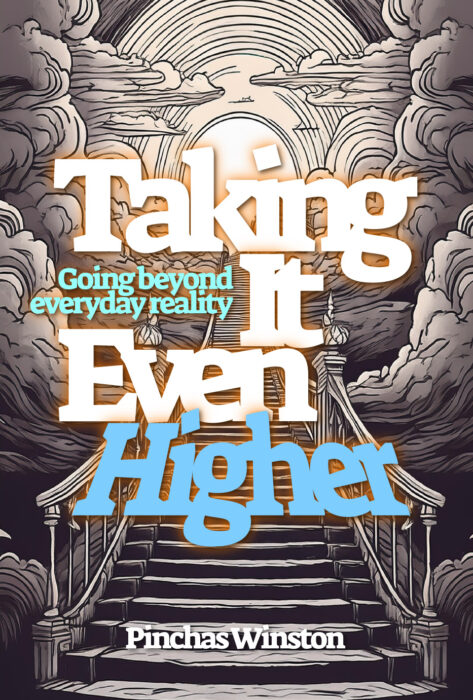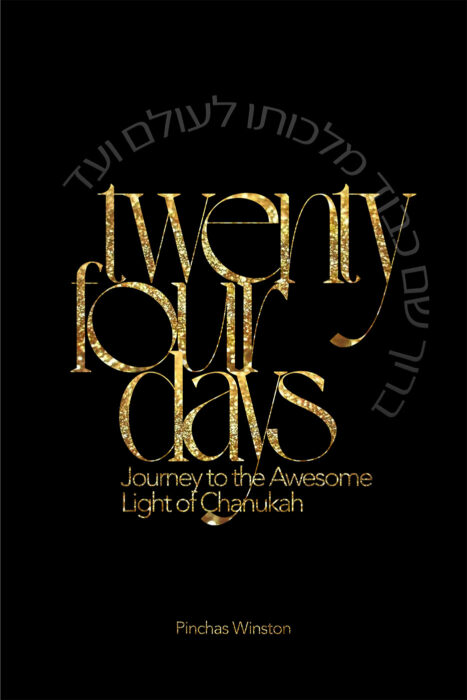Perceptions, Parashas Beshallach, Issue #2083 - By Rabbi Pinchas Winston
WHY ARE YOU praying to Me? What kind of question was that? The Jewish people were helplessly trapped between the Egyptian army and the Red Sea with nowhere to run. What else was there to do at that point but pray?
Different commentators give different answers. One answer is that prayer, being a request from God, has to match the request. Asking someone for one dollar is no big deal. Asking them for one thousand dollars is, and if you ask like it isn’t, you probably won’t get it.
Likewise, if Moshe Rabbeinu had only asked God to save a handful of Jews miraculously, his prayer would not have been questioned. If he could pray to God 515 times and almost annul the decree against not to enter Eretz Yisroel, certainly he could pray strong enough to save a bunch of Jews.
But three million Jews, and even a lot more Erev Rav? That was like asking your friend for a billion dollars who, even if he has the money, is highly unlikely to grant the request, or anything remotely close to it. On the contrary, he will probably consider to be a major chutzpah that you even thought to ask for so much money!
However, it was different with Moshe, who might have been worthy of such a miracle through prayer. It was everyone else whose worthiness was questionable, especially the Erev Rav. The miracle would have happened for them, and they would have witnessed it, a very high level of Divine revelation that only the spiritually fitting get to enjoy.
But the miracle did happen for them, and they did witness it in the end. But that was only after they did something to become worthy of it in their own right, which was to walk into the sea until they could not go any further without drowning, every last one of them. It was this show of bitachon that gave them the right to be miraculously saved and to know how.
This is similar to something in the Gemora. The occurrence happens on two separate occasions, one with Hillel the Great, and the other for Shmuel HaKatan, credited with setting up the blessings of the Shemonah Esrai. On each occasion, a Heavenly voice calls out that “someone is fitting to receive prophecy were it not for the generation” (Sanhedrin 11a). The first time everyone knew that Hillel was the worthy one, and the second time, that it was Shmuel HaKatan.
This is something to keep in mind when asking God for a miracle. A miracle doesn’t just affect the person waiting for one, but the people around them as well. And not just the people around them, but even the people that may come later on in history. History is (Divine) cause and (Divine) effect, and when it changes for some reason or another, the effect ripples past the moment and into the future.
This is why many miracles tend to be smaller, more localized miracles. How many times have you been amazed at your hashgochah pratis (Divine Providence), even giving it miracle status, only to share it with others who remain unfazed and unmoved by it? It just rolls right off them.
It’s like the joke about a rabbi who, early one Shabbos morning on his way to shul, succumbed to his yetzer hara to hit one golf ball at the golf course he had to pass and frequented on weekdays. Rationalizing the permissibility (there was an eruv around the course) but checking to make sure that no congregants were around, he took his one swing.
To the rabbi’s shock, and the dismay of the angels watching from above, he sunk a hole in one. Complaining bitterly to God about how He could allow the rabbi to get a hole-in-one he has never hit while “breaking” Shabbos, God merely said, “Who’s he going to tell?”
Because, as we all know, the best part of a miracle is telling others about it. It increases our wonder and makes us feel special as if to say, “God thinks I’m special enough to change Creation for me!” The agony of not being able to tell anyone about his hole-in-one might eventually have made the errant rabbi wish he had never shot it in the first place, at least on Shabbos.
Even worse, the main point of the miracle is lost. You might be special enough in God’s eyes to warrant a miracle, but the main point of publicizing it is not to reflect back on you. It is for the sake of something Kabbalah calls Tikun HaShechinah, the rectification of the Divine Presence. This is something, believe it or not, that defines a person’s entire life because this is what we’re here to do.
What is that tikun? The end of the golus. Because, as long as the Jewish people remain in exile and the Temple remains unbuilt, the Shechinah is in exile. And though we may enjoy exile…for the time being…the Shechinah does not. It suffers. And since, as the Leshem explains, the Jewish people are considered to be the limbs of the Shechinah, so to speak, we suffer with it.
But if we learn anything from this week’s parsha, it is the power of bitachon, of trust in God to dramatically change all of that. It was the entire purpose of exile and redemption, to teach us that, and it remains the entire purpose of our exile and, God willing, eventual redemption. Get on the right page now and you can be a cause of redemption and not a “victim” of it.
Check out my new Haggadah, b”H, called “The Wise Son Says.” You can see it here: https://www.shaarnunproductions.org/lwise-son-says-haggadah.html, and take advantage of the special offers available at this time. Pesach is closing in on us fast, b”H, so please check out my new Haggadah while the special lasts. It’s Torah for the entire year…and possibly life-altering. Available on Amazon.
Thirtysix.org
Rabbi Pinchas Winston
Shabbat Shalom



















